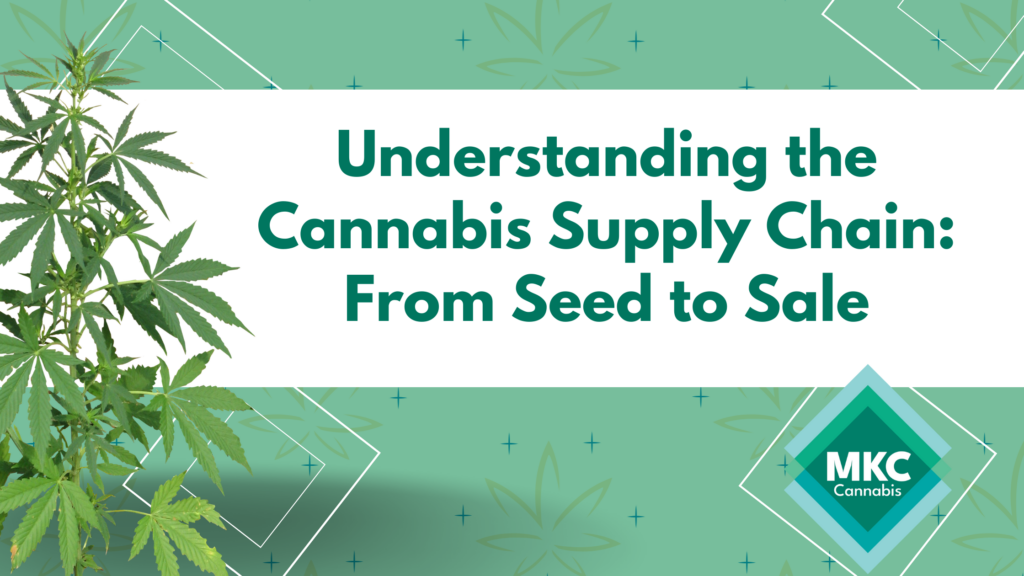The cannabis industry is a rapidly expanding market, and understanding the intricate supply chain is critical for businesses and consumers alike. From cultivating seeds to delivering products to customers, each step of the supply chain plays a vital role in ensuring quality, compliance, and accessibility. In this blog, we’ll break down the cannabis supply chain, highlighting the key stages and challenges businesses face while navigating this complex industry.
1. Cultivation: Where It All Begins
The cannabis supply chain starts with cultivation. Growers select seeds or clones based on desired strain profiles, market demand, and growing conditions. Cultivation can occur indoors, outdoors, or in greenhouses, each with its unique advantages and challenges.
Key Processes:
- Seed Selection and Breeding: Choosing high-quality seeds or genetically stable clones is crucial for ensuring consistent product quality.
- Growing: Includes soil preparation, irrigation, lighting, and pest management to promote healthy plants.
- Harvesting: Timing the harvest is essential to maximize potency and terpene profiles.
Challenges:
- High operational costs for indoor grows, such as energy and equipment.
- Regulatory requirements for sustainable and compliant farming practices.
2. Processing and Extraction: Turning Plants into Products
Once harvested, cannabis plants are processed to prepare them for various applications. This stage includes trimming, drying, and curing the flower, as well as extracting cannabinoids and terpenes for products like oils, edibles, and concentrates.
Key Processes:
- Drying and Curing: Enhances the flavor, potency, and shelf life of cannabis flower.
- Extraction: Uses methods like CO2, ethanol, or hydrocarbon extraction to produce oils, tinctures, and concentrates.
- Product Development: Infusing extracted cannabinoids into edibles, topicals, and beverages.
Challenges:
- Maintaining consistency in cannabinoid and terpene profiles.
- Adhering to stringent testing and safety standards.
3. Manufacturing: From Raw Material to Retail-Ready
The manufacturing stage focuses on transforming raw cannabis materials into consumer-ready products. This stage includes packaging, branding, and ensuring compliance with local and federal regulations.
Key Processes:
- Product Assembly: Edibles are infused with cannabinoids, topicals are mixed with active ingredients, and vape cartridges are filled.
- Packaging and Labeling: Includes tamper-proof seals, child-resistant packaging, and clear labeling with THC/CBD content.
- Quality Assurance: Testing products to ensure they meet safety and potency standards.
Challenges:
- Complying with packaging laws, such as child-proofing and ingredient transparency.
- Managing costs without compromising on quality or aesthetics.
4. Distribution: Connecting Producers to Retailers
Distributors play a critical role in the cannabis supply chain, acting as intermediaries between manufacturers and retailers. They ensure products are stored, transported, and delivered safely and efficiently.
Key Processes:
- Inventory Management: Tracking product quantities and expiration dates.
- Logistics: Coordinating transportation and storage in temperature-controlled environments.
- Regulatory Compliance: Ensuring all products meet local and federal guidelines during transit.
Challenges:
- Navigating state-specific regulations that govern cannabis transportation.
- Mitigating risks of theft and ensuring product integrity during delivery.
5. Retail: The Consumer Connection
The final stage of the cannabis supply chain is retail, where products are sold to consumers through dispensaries or online platforms. Retailers serve as the face of the cannabis industry, providing education and guidance to customers.
Key Processes:
- Dispensary Sales: Budtenders assist customers in selecting the right products based on their preferences and needs.
- Online Sales: E-commerce platforms offer convenience and delivery options to consumers.
- Customer Education: Providing information about product types, dosages, and usage methods.
Challenges:
- Complying with advertising restrictions and age-verification requirements.
- Managing inventory to meet consumer demand while minimizing waste.
6. Challenges and Opportunities Across the Supply Chain
The cannabis supply chain faces unique challenges due to its regulatory complexity and evolving market. However, these challenges also create opportunities for innovation and differentiation.
Challenges:
- Regulatory fragmentation: Different states have unique rules for cultivation, processing, and sales.
- High operational costs: Energy usage, licensing fees, and compliance costs can strain businesses.
- Market volatility: Fluctuations in demand and pricing can impact profitability.
Opportunities:
- Technology adoption: Inventory management software, blockchain for tracking, and AI for demand forecasting.
- Sustainable practices: Eco-friendly cultivation and packaging to attract environmentally conscious consumers.
- Brand storytelling: Highlighting your journey from seed to sale to build trust and loyalty.
Navigating the Cannabis Supply Chain
From seed to sale, the cannabis supply chain is a dynamic and multifaceted process. Understanding its stages and challenges is crucial for businesses aiming to succeed in this competitive industry. Whether you’re cultivating premium flower, developing innovative edibles, or launching a new dispensary, mastering the supply chain is key to delivering quality products and building consumer trust.
Looking to strengthen your cannabis brand at every stage of the supply chain? MKC Cannabis can help you craft a compelling story that resonates with your audience. Explore our Brand Guide or browse our portfolio to see how we’ve supported other cannabis businesses.







